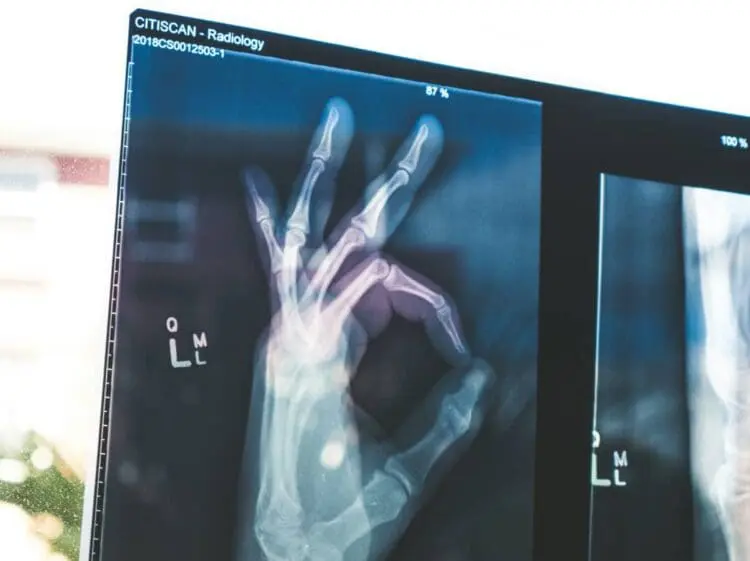Interested in the medical field? Maybe your child is in high school and looking to do some career exploration. Or maybe your children have flown the nest and you want to get back into the medical field. Medical internships are a crucial part of medical education and training, providing hands-on experience in clinical settings. Choosing the right medical internship is crucial for shaping your future career and ensuring you gain the most from the experience. Whether you’re aiming to work in underserved areas or aspire to be among the distinguished Johns Hopkins alumni, your internship should align with your professional goals and personal interests. Here are some of the critical factors to consider when choosing a medical internship that fits your goals.

Choosing the Right Medical Internship: Key Factors to Consider
Internships give medical students the opportunity to work directly with patients, perform procedures, and participate in clinical decision-making, which is essential for developing clinical skills. In addition, internships often involve rotations in different medical specialties, allowing students to explore various fields of medicine and make informed decisions about their future career paths. Medical internships are a bridge between academic learning and professional practice. Here is how to pick the right one or ones to apply to for first-hand experience.
1. Identify Your Professional Interests
First, consider what area of medicine excites you the most. Maybe you have a passion for physical therapy, dental care, or mental health. Determining your specific interests will help you narrow down internship opportunities that offer relevant experiences and training.
To gain more insight, you can look for institutions that offer different internship programs. If you explore International Medical Aid, for example, you’ll find programs that offer the best learning experiences while giving you the chance to travel the world and enrich your cultural competency.
You can also look up some of the most popular internship specializations, including:
Public Health
If you’re drawn to improving health outcomes on a larger scale, a public health internship might be right for you. These internships often involve research, policy-making, and community health initiatives.
Physical Therapy
If you’re interested in helping patients recover from injuries and improve their mobility, consider an internship in physical therapy. These programs offer the chance to work with licensed physical therapists and learn about rehabilitation techniques and patient assessments.
Dental Care
Aspiring dentists can benefit from internships that focus on dental care. These opportunities often include shadowing dentists, assisting with procedures, and learning about oral health practices.
Mental Health
Those passionate about mental health can seek internships in psychology or psychiatry. These positions may involve working with mental health professionals, participating in therapy sessions, and learning about mental health disorders and treatments.
It’s best to explore multiple specializations early in your med school journey. This way, you’ll have time to think it through and make an informed decision.
2. Geographic Preferences
Where you choose to intern can significantly impact your experience. Internships in the United States offer exposure to advanced medical technologies and practices. However, international internships provide unique opportunities to explore global health issues. For instance, programs in East Africa, South America, and Saharan Africa offer invaluable experiences in global health, allowing you to make a tangible difference in underserved areas.
If you’re interested in gaining international medical aid experience, you might want to explore international medical aid programs. These programs often focus on delivering health services to communities in need, providing you with a broader perspective on healthcare challenges and solutions.
3. Type of Internship
Different internships focus on various aspects of healthcare, such as clinical exposure, public health, research, and administration. Clinical internships involve direct patient care, offering hands-on experience in hospitals, clinics, or private practices. Public health internships focus on population health, involving research, policy-making, and community health initiatives.
Research internships provide the opportunity to work in laboratories or research institutions, contributing to advancements in medical knowledge and treatments. Administrative internships offer insight into healthcare management and policy, involving tasks in hospital administration, health insurance companies, or healthcare consultancy firms. International health internships allow you to work in diverse cultural and healthcare settings, often in underserved or rural areas.
These internships are ideal for gaining practical skills and understanding the day-to-day responsibilities of healthcare providers. They also provide opportunities to work on health promotion, disease prevention, and health policy projects. By choosing an internship that aligns with your career goals, you can gain valuable experience and prepare for a versatile career in medicine.
4. Support and Insurance
When considering an international internship, ensure the program offers adequate support, including international health insurance and travel medical insurance. These are crucial for covering any medical expenses you might incur while abroad. Programs that offer comprehensive support will ensure that your focus remains on gaining valuable experience rather than worrying about logistics.

5. Learning Opportunities
Look for programs affiliated with reputable institutions, as they tend to provide high-quality education and mentorship. Internships that offer diverse learning opportunities, such as exposure to different health services and healthcare systems, will broaden your knowledge and add to your flexibility as a versatile medical professional.
6. Evaluate Program Structure
A well-organized internship will provide a balance between hands-on experience and educational activities. Look for programs that include seminars, workshops, and mentorship from experienced healthcare professionals. These elements are essential for your professional development and ensure a comprehensive learning experience.
7. Financial Considerations
Factor in the cost of the internship, including travel, accommodation, and any program fees. Some internships may require significant upfront costs, especially those located abroad. Make sure you understand all the associated costs before committing to a program.
Some internships offer stipends or scholarships to help cover expenses. Research and apply for these financial aids, as they can significantly reduce the financial burden. Organizations, universities, and non-profits often provide funding opportunities for students pursuing medical internships, especially in underserved areas.
8. Focus on Underserved Areas
If you’d like to contribute your expertise in areas in dire need of medical services, look for internships that specifically address the needs of these communities. Internships in regions like East Africa and Saharan Africa provide a unique opportunity to work with populations that have limited access to healthcare. Aside from learning about medicine and a deeper understanding of global health challengegs, you’ll also have an incredibly rewarding life experience which can further fuel your motivation to excel in your field.
Medical Internships for High School Students
High school students who are considering a medical career can also benefit from internships. These programs provide early exposure to the medical field, allowing students to explore their interests and gain valuable experience. High school internships often focus on introductory aspects of healthcare, such as shadowing healthcare professionals, participating in basic medical research, or engaging in community health projects. These internships provide students with the opportunity to establish a solid foundation and to make well-informed choices regarding their future academic pursuits and career trajectories. High school medical internships are can sometimes be arranged with local hospitals through established school run programs.
Final Thoughts
Choosing a medical internship that fits your goals involves careful consideration of the factors discussed above. By harmonizing these elements with your professional goals, you can secure an internship that offers significant experience and lays the groundwork for a prosperous career in the field of medicine. Whether you’re passionate about global health, public health, or clinical care, the right internship will equip you with the skills and knowledge to make a significant impact in the healthcare field.
Related Posts:

Maya says
Lots of useful info here. I’m sending it to a few friends and additionally sharing in delicious. My friend’s daughter had a medical internship in high school and it gave here a good idea of what that would be like. She decided against medicine but was glad to know that so she could start pursing other avenues.
Raven says
Really this a awesome article. I have been interested in getting a medical assistant internship and a lot of these points you brought up are still very useful for me.
Rosy says
I really like your content; moreover, this article is very useful for us. Thanks for sharing this information for those who are interested in becoming medical professionals. It is a great idea to get practical experience. My daughter is looking into summer internships.
slope says
I don’t think I’d really have much of a say in the matter. I’d go to whichever school choose me. I’d be grateful to have even one option let alone more. Med school be competitive affffff